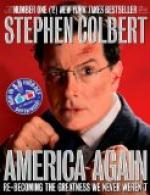Mac took the halter into his own hands there was no one else worthy— and, slipping into the stern of the boat, spoke first to the horse and then to the oarsmen; and as the boat glided forward, the noble, trusting old horse—confident that his long-tried human friend would set him no impossible task—came quietly through the shallows, sniffing questions at the half-submerged bushes.
“Give him time!” Mac called. “Let him think it out,” as step by step Roper followed, the halter running slack on the water. When almost out of his depth, he paused just a moment, then, obeying the tightening rope, lifted himself to the flood and struck firmly and bravely out.
Staunchly he and Mac dealt with the current: taking time and approaching it quietly, meeting it with taut rope and unflinching nerve, drifting for a few breaths to judge its force; then, nothing daunted, they battled forward, stroke after stroke, and won across without once pulling the boat out of its course.
Only Roper could have done it; and when the splendid neck and shoulders appeared above water as he touched bottom, on the submerged track, he was greeted with a cheer and a hearty, unanimous “Bravo! old chap!” Then Mac returned thanks with a grateful look, and, leaping ashore, looked over the beautiful, wet, shining limbs, declaring he could have “done it on his own,” if required.
Once assured that we were anxious for a start, the Katherine set about speeding the parting guests with gifts of farewell. The Wag brought fresh tomatoes and a cucumber; the Telegraph sent eggs; the Police a freshly baked cake; the Chinese cook baked bread, and Mine Host came with a few potatoes and a flat-iron. To the surprise of the Katherine, I received the potatoes without enthusiasm, not having been long enough in the Territory to know their rare value, and, besides, I was puzzling over the flat iron.
“What’s it for?” I asked, and the Wag shouted in mock amazement: “For! To iron duds with, of course,” as Mine Host assured us it was of no use to him beyond keeping a door open.
Still puzzled, I said I thought there would not be any need to iron duds until we reached the homestead, and the Maluka said quietly: “It’s for the homestead. There will be nothing like that there.”
Mac exploded with an impetuous “Good Heavens! What does she expect? First pillows and now irons!”
Gradually realising that down South we have little idea of what “rough” means to a bushman, I had from day to day been modifying my ideas of a station home from a mansion to a commodious wooden cottage, plainly but comfortably furnished. The Cottage had confirmed this idea, but Mac soon settled the question beyond all doubt.
“Look here!” he said emphatically. “Before she leaves this place she’ll just have to grasp things a bit better,” and sitting down on a swag he talked rapidly for ten minutes, taking a queer delight in making everything sound as bad as possible, “knocking the stiffening out of the missus,” as he phrased it, and certainly bringing the “commodious station home” about her ears, which was just as well, perhaps.




